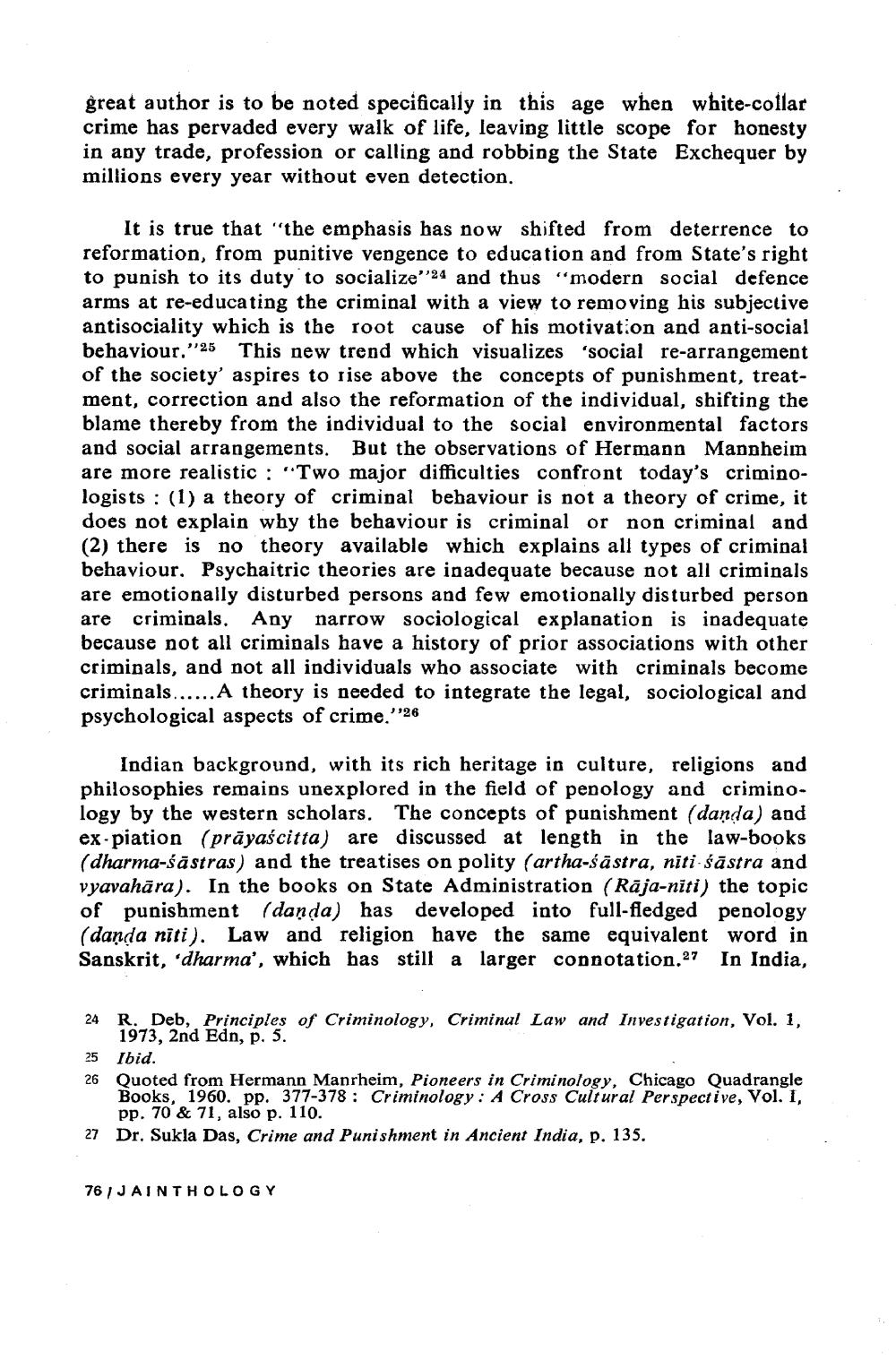________________
great author is to be noted specifically in this age when white-collar crime has pervaded every walk of life, leaving little scope for honesty in any trade, profession or calling and robbing the State Exchequer by millions every year without even detection.
It is true that "the emphasis has now shifted from deterrence to reformation, from punitive vengence to education and from State's right to punish to its duty to socialize":24 and thus "modern social defence arms at re-educating the criminal with a view to removing his subjective antisociality which is the root cause of his motivation and anti-social behaviour."25 This new trend which visualizes 'social re-arrangement of the society' aspires to rise above the concepts of punishment, treatment, correction and also the reformation of the individual, shifting the blame thereby from the individual to the social environmental factors and social arrangements. But the observations of Hermann Mannheim are more realistic : "Two major difficulties confront today's criminologists: (1) a theory of criminal behaviour is not a theory of crime, it does not explain why the behaviour is criminal or non criminal and (2) there is no theory available which explains all types of criminal behaviour. Psychaitric theories are inadequate because not all criminals are emotionally disturbed persons and few emotionally disturbed person are criminals. Any narrow sociological explanation is inadequate because not all criminals have a history of prior associations with other criminals, and not all individuals who associate with criminals become criminals...... A theory is needed to integrate the legal, sociological and psychological aspects of crime.''26
Indian background, with its rich heritage in culture, religions and philosophies remains unexplored in the field of penology and crimino. logy by the western scholars. The concepts of punishment (danda) and ex-piation (prāyaścitta) are discussed at length in the law-books (dharma-śāstras) and the treatises on polity (artha-śāstra, niti śāstra and vyavahāra). In the books on State Administration (Rāja-niti) the topic of punishment (danda) has developed into full-fledged penology (danda niti). Law and religion have the same equivalent word in Sanskrit, dharma', which has still a larger connotation.27 In India,
24 R. Deb, Principles of Criminology, Criminal Law and Investigation, Vol. 1,
1973, 2nd Edn, p. 5. 25 Ibid. 26 Quoted from Hermann Manrheim, Pioneers in Criminology, Chicago Quadrangle
Books, 1960. pp. 377-378: Criminology: A Cross Cultural Perspective, Vol. I,
pp. 70 & 71, also p. 110. 27 Dr. Sukla Das, Crime and Punishment in Ancient India, p. 135.
76 JAINTHOLOGY




